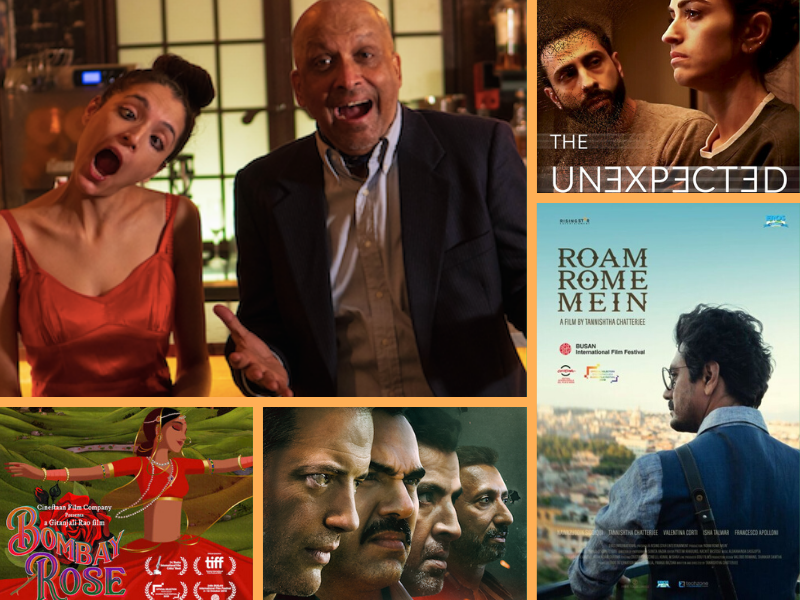
Presented by Toyota, the Big Apple welcomed its newest South Asian film festival, New York City South Asian Film Festival (NYC SAFF). Founded by veteran festival director Jitin Hingorani, the festival’s mission is to showcase premieres of features, documentaries and short films curated to engage, educate and inspire the masses, ranging from Baby Boomers to Generation Z. And so they did from November 15-16, the likes of Nawazuddin Siddiqui and Tannistha Chatterjee, Abhay Deol, Brendan Fraser and many more were in attendance premiering their films alongside 22 other films!
Four of those films walked away with top honors at the closing night awards ceremony, held at Rumi Event Space in Chelsea on Sunday night.
The winners of the festival are as follows:
Best Short:
WHAT DID YOU THINK? directed by Parinaz Jal (World Premiere)
Best Actress:
Usha Jadhav for MAI GHAT, directed by Ananth Narayan Mahadevan (North American Premiere)
Best Actor:
Ashish Sharma for KHEJDI, directed by Rohit Dwivedi (NYC Premiere)
Best Director:
Ananth Narayan Mahadevan for MAI GHAT (North American Premiere)
Best Film:
KAAMYAAB directed by Hardik Mehta (NYC Premiere)
Opening Night
Line of Descent
Directed by Rohit Karn Batra
Hindi/English, 108 minutes, 2019, USA
Review by Jashima Wadehra
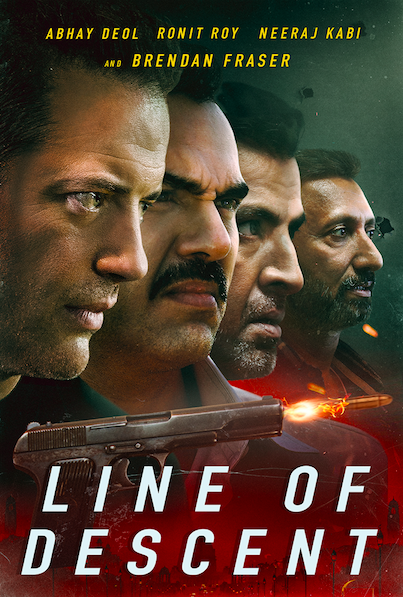
You know when it’s raining out and you make some hot chai, cuddle up on the couch, search Netflix in the mood for a movie with a cute actor and lame, easy-to-follow plotline? This is it. I will forever be biased where Abhay Deol is concerned, those dimples would make anyone weak at the knees BUT this film left much to be desired in its plot. Written and directed by Rohit Karn Batra and featuring the iconic Brendan Fraser, as much as I was fangirling (Hello! Encino man!) I found myself wondering why we were still rinsing and repeating stereotypes and cliche storylines from the early 2000’s.
A mafia patriarch’s three sons fight over who will take control of the future of their criminal businesses with standard overdramatized intimidation and “tough guy” violent routines. While the plot may have left something to be desired, the action shots and cheesy jokes made for a few belly induced laughs and the star-studded cast (Ronit Roy, Prem Chopra, Neeraj Kabi, and Ali Haj) brought their A-game, I mean…I am still waiting patiently waiting for Abhay…(call me)!
With winter around the corner, “Line of Descent” makes for a decent in-the-background eye-candy film, but don’t expect to see an innovative narrative that has you at the edge of your seat.
Centerpiece Programming
Bombay Rose
Directed by Gitanjali Rao
Hindi, 93 minutes, 2019, India/United Kingdom/France/Qatar
Review by Jashima Wadehra
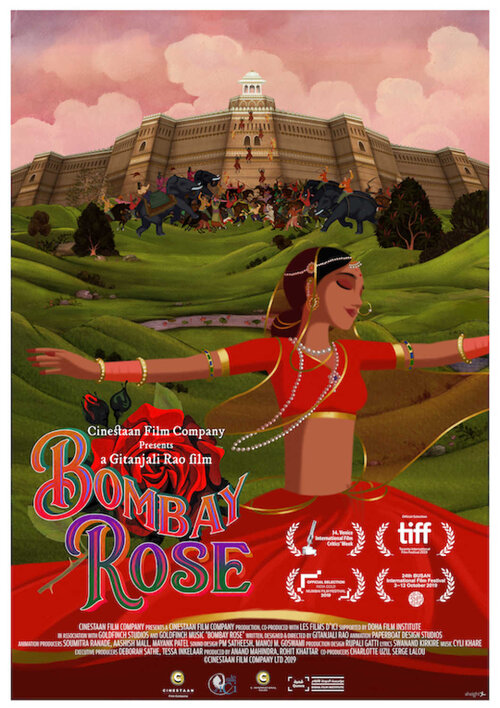
Gitanjali Rao has transported us to an alternate world with her animation of Mumbai and the duality of the city that pulsates Kalakari (artistry) and the perils of survival navigating extreme wealth disparity. Animated films have a magic all their own, every detail, color, and angle made you feel as though you had arrived in Mumbai.
The attention to detail and editing alone was a pleasure to watch and compensated for a slightly scattered storyline that was perhaps too nuanced for its length. The rose, cardamom and Haldi color palate tugs at the heartstrings and makes for a visual experience so intricate, the thought and effort are apparent.
Kamala and Salim’s love brews amidst Bombay’s day-to-day struggles and makes references to mythology and Bollywood — an ever so beautifully relatable facet but slightly too much context and information.
The film’s beautiful visuals were complemented by an incredibly well developed musical scoring featuring compositions that enhanced the audience’s watching experience. You’re left feeling as though you’ve been in love and heartbroken…and slightly overstimulated but so enamoured with the magic that is, Bombay.
Closing Night Film
Roam Rome Mein
Directed by Tannishtha Chatterjee
English/Hindi/Italian, 2019, India
Review by Jashima Wadehra
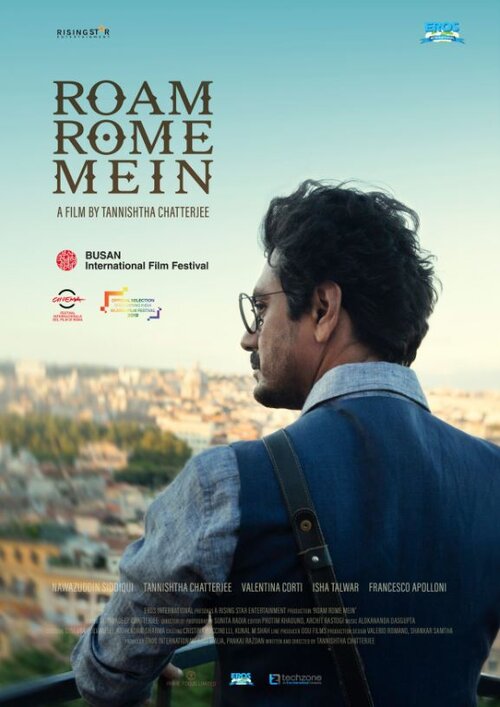
Have you ever felt seen? Wondered how you perceive others? Do we see of people who they are OR do we see who we want them to be? This double entendre titled feature film had us asking these very questions. Following the brother-sister duo played by writer/director Tannishtha Chatterjee and Nawazsuddin Siddiqui, we unravel the many tangles of gender inequality, familial expectations and the perception of art and autonomy.
Filmed predominantly in Rome, we follow the runaway Reena whose fate remains undetermined, as she indulges in the pleasantries of life as an architectural student in the exquisitely designed city of Rome and evades her father and family’s expectations. Reena flees a home that dictated her personal life, imposed a curfew and deprived her of education on the basis of her gender being a disadvantage in hopes to find a version of herself that is real.
As a woman, watching “Roam Rome Mein” felt as though this film made of subconscious, time-lapse shots, was disorienting yet infectiously empowering as stigmas were dismantled one by one while paying homage to Italy’s renaissance of historical feminism. Watching Nawazuddin (who comes from a similar background as his character, from a region that is used to women staying home, not receiving an education and being generally less-than), act as an overprotective and overzealous brother who goes on his own journey of self-discovery was a beautiful experience outlining the value of change and growth in life.
Paired with a beautiful title song and an incredible heartwarming series of interactions, “Roam Rome Mein” is a wonderful film the world deserves to see. Women are often considered to be the sum of our roles; daughters, wives, sisters but we are seldom reminded that our conglomerate is not all that we are but simply a part.
Manhattan Shorts
Fractured Souls
Directed by Eliezer Vergara
English, 15 minutes, 2019, USA
Review by Divya Jethwani
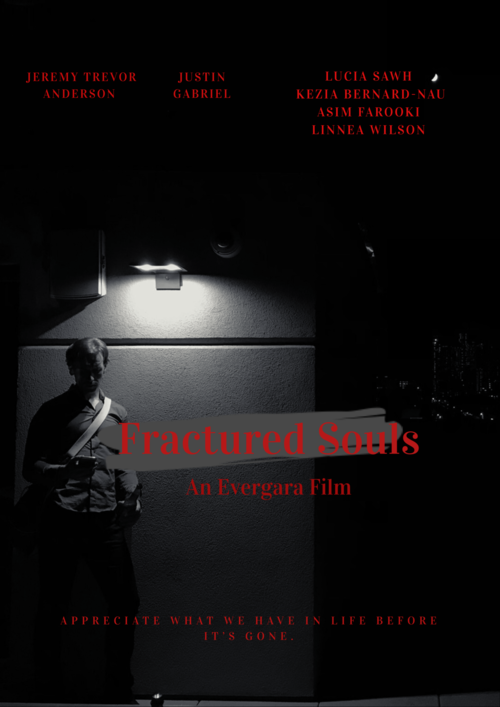
Eliezer Vergara’s “Fractured Souls” opens with a man at a sink vigorously rinsing his hands from what seems to be the remains of a bloody encounter. My mind is drawn to different places imagining what could have possibly occurred before that moment. As the story goes on, the viewer is taken on a journey exploring various socio-cultural issues (infidelity, xenophobia, workplace harassment, religious violence, honor killings and more), however, the story follows a rather complicated path before merging two parallel plotlines in the midst of workplace harassment.
A lot of time is spent exploring the protagonist’s life following an unfaithful encounter. The confusion, anxiety, walking on eggshells, the downwards spiral at work. This, followed by the entry of a new employee (the same man washing his bloody hands in the opening scene), who does nothing but keep to himself in his cubicle in a sterile work environment. Catching the new employee, a Muslim, praying in a secluded room, the protagonist proceeds to harass and bully him. This interaction creates conflict before the protagonist reaches an emotional arc. Through the experiences of this new employee, the protagonist is forced to examine his actions and the way he values his spouse and the people around him.
Pulling on the protagonist and the viewer’s emotional strings through an honor killing, “Fractured Souls” puts emphasis on the value of love and life, reiterating not to take what you have for granted, because you will regret it when it is gone. The protagonist’s transformation in the way he views his romantic relationship after learning about his colleague’s wife’s murder surpasses his douchebag personality and distaste of a religion that is different from his.
Although there is a sense of open-mindedness and acceptance at this moment, “Fractured Souls” barely grazes the surface with all the opportunities it has to amplify the various themes in the story. The story brings together extremely important and relevant themes in today’s society but is unable to do justice to each of them. As a viewer, I was drawn to the dialogue “religion has no color” and wish there was more explanation of how this tied into the journey in the character’s emotional arc.
The Unexpected
Directed by Rishi Kumar
English, 12 minutes, 2019, USA
Review by Jashima Wadehra
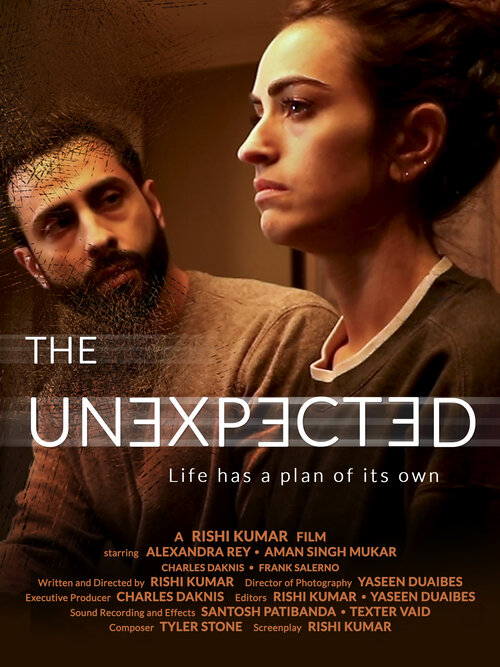
Rishi Kumar’s first short film, The UnExpected, is just that—unexpectedly beautiful. In just a few minutes Kumar transports us into the home of a beautiful young couple trying to conceive. As they struggle through the ebbs and flows of infertility and IVF, for the first time in South Asian cinema, I’ve seen an emphasis on how traumatic and debilitating the process of conception can be and it was depicted exceedingly well without having to be overly explained. We follow their journey of emotional turmoil and faith. Following the female protagonist’s coping mechanisms and effort to survive, we feel her pain as she struggles to make it through each day. We experience the balance in life of loss and gain, love and pain and the greater acceptance of it all. With a diverse cast touching on intersectional cultural taboos (interracial marriage, conception, adoption, death) the film managed to address several socio-cultural issues without confusing or overwhelming the storyline.
Wherever there is good, there must be bad. The void of love and the grief of loss are feelings less acknowledged but ever-present. The UnExpected entrenches the audience with its reminder to value life and can serve as an incredible catalyst for conversations our community needs to normalize.
Freak
Directed by Vick Krishna
English, 12 minutes, 2019, USA
Review by Divya Jethwani
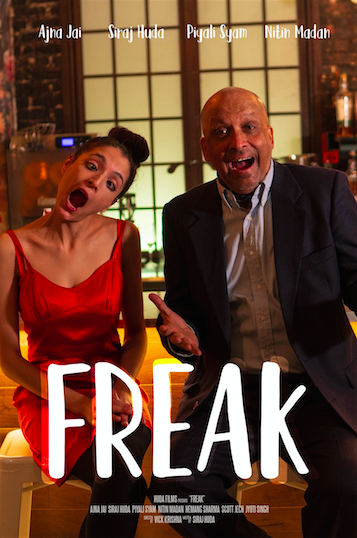
“Freak” is the heartwarming journey of love, acceptance and self-discovery as a daddy’s little girl comes out and draws the curtains on their relationship. Resulting in a rather positive outcome, “Freak” wants to showcase open-mindedness and the innocence of a father-daughter relationship.
Exploring different realities of being a South Asian woman, the story encompasses the parallel journeys of a single father with a strong, but graceful daughter; alongside her ladylove, a woman scared of her mother’s judgmental eye and a reluctant but softie dad who is also scared of his wife, but loves his daughter dearly.
Through the journey of the characters, I was pleasantly reminded of my childhood, where I would seek comfort in my dad when I knew I had done something wrong or needed validation in a situation because I knew my mother would scorn me or offer her unnecessary criticism. Freak capitalizes on this sweet bond which is furthered through characters of the dads. Silly, goofy, hesitant yet willing to go out of their comfort zones, Siraj Huda and Nitin Madan personify the typical desi dad. The soliloquy style narration allows the viewer into the minds of the characters, adding a unique element to the film.
For the first time in South Asian cinema, have I seen a positive take on the sensitive topic of homosexuality. Although “Freak” does a great job with tackling relevant issues, as a viewer, I wish there was a little more focus on the script-writing and plot development that exceeded the sweetness and explored more on the reality of the situation.
Ephemera
Directed by Chelses Venkadathu
English, 21 minutes, 2019, USA
Review by Divya Jethwani
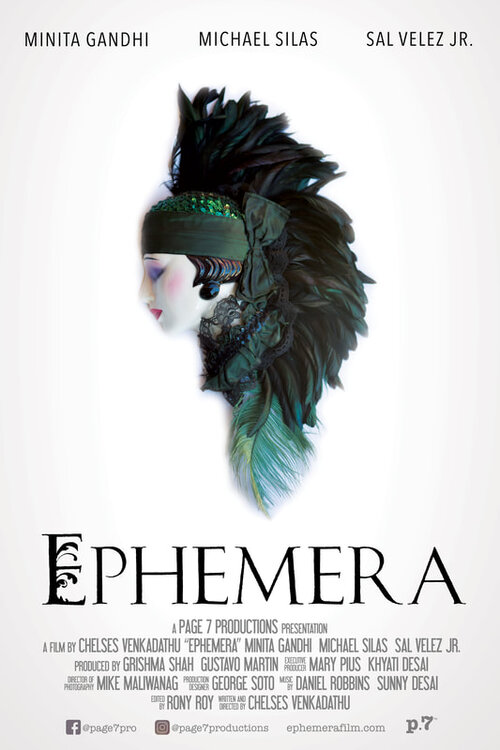
Ever heard the Yeh Jawaani Hai Deewani dialogue shaadi (marriage) is boring, “daal chawal for 50 years till you die?” Ephemera explores the journey through that boring and feels like a coming-of-age story for a married couple. Set in suburban America, the viewer is instantly transported into the seemingly boring and routine life of a couple and their young daughter. The female protagonist personifying a South Asian wife, the nagging, bickering with a constant need for more paired alongside a Caucasian husband, who is rather indifferent, complacent and open to exploring the unknown. Despite this, the husband’s character is still caring and cognizant of his wife’s needs and is willing to move at her pace.
Ephemera follows the attempt of this couple to keep things exciting as they explore their sexual desires, satisfaction and experimentation outside of the sanctity of their marriage. A conversation not often had in South Asian society, the film creates acceptance for intimate exploration between two consenting individuals. As a viewer, we are exposed to the fear, doubt and uncertainty that presents itself by virtue of emotionally engaging with another individual outside of a marriage. The character’s internal conflict to take this first step, but feeling the need to give it a shot legitimizes the concerns one might have of seeking intimacy beyond their partner.
With an easy to follow plotline and character development, Chelses Venkadathu pushes the boundaries and conventional thinking behind the system of marriage and explores new lifestyles that might help to ease the mundanity of the protagonists’ relationship and keep the family bound.
Arts Programming
Kaamyaab
Directed by Hardik Mehta
Hindi, 107 minutes, 2018, India
Review by Radhika Menon
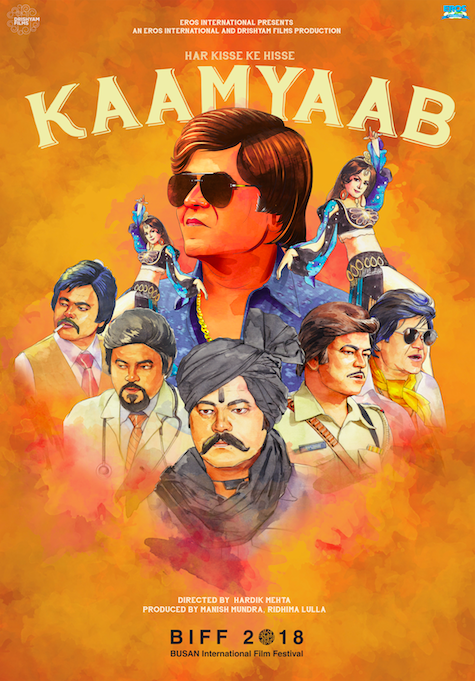
The Bollywood films of yesteryear are chock full of quirky side characters, from policemen to villains, who often make a name for themselves through memorable dialogue or interesting on-screen presence. But what happens after they fade into obscurity?
The film stars Sanjay Mishra as Sudheer, a washed-up character actor who discovers he’s on the verge of a rare record. While being interviewed for a “where are they now” type of show, Sudheer finds out he has 499 IMDB credits, which sets in motion a quest to complete one last film. As he comes out of retirement for his 500th role, Sudheer is adamant about no longer being the sideshow; for this milestone, he wants to be front-and-center.
Wig donned, he reenters the Bollywood film arena and aims to be cast opposite the current hot superstar. His determination threatens to ruin his already rocky relationship with his daughter and her family, as well as his legacy within the industry — which was the impetus for all of this, to begin with.
Films about the film industry aren’t new, but Kaamyaab finds a stone that had not yet been unturned and thrusts it into the light. Sanjay Mishra’s acting is so genuine and heartbreaking that even when Sudheer is making inadvisable decisions, the audience remains on his side.
Director Hardik Mehta is empathetic in his direction, largely driven by his youthful interest in the subject matter; in a post-screening Q&A he affirmed that the movie was largely inspired by the character actors that he grew up loving. Mehta’s interest in the filmmaking industry also expands into music, and his directorial debut features three original musical compositions. Kaamyaab is a beautiful love letter to both the bygone eras of the Bollywood film industry and the practice of acting as a means for fulfilment. As the film moves from the festival circuit to theatrical release, it’s worth seeking out.




